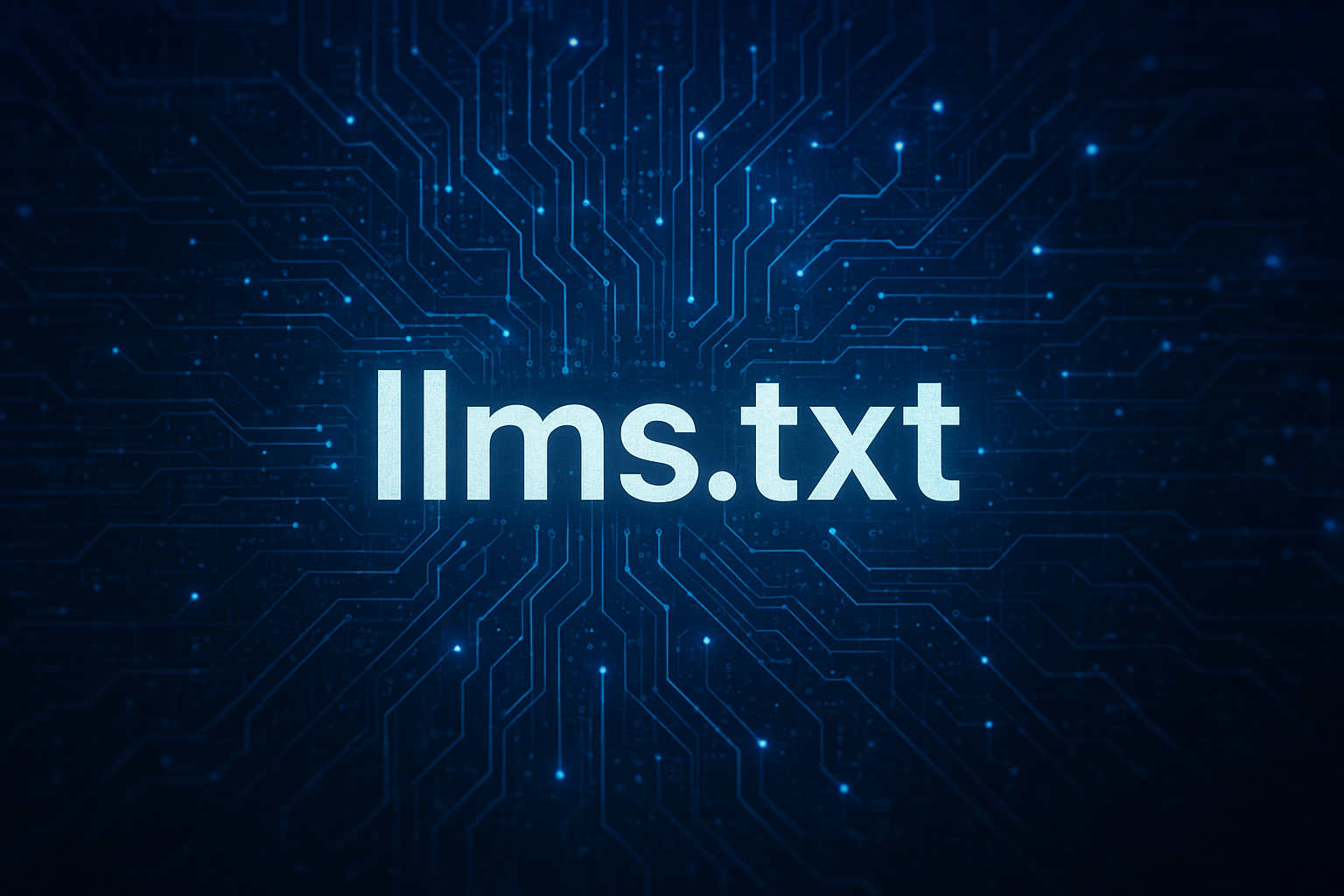As large language models (LLMs) increasingly rely on structured site manifests to understand and cite web content, the emerging llms.txt standard is becoming an important addition for site owners. Similar to how robots.txt provides directives for search engine crawlers, llms.txt establishes guidelines for AI systems. In this article, we’ll look at the best Drupal modules available for managing llms.txt and explore external llms.txt generators.
For Drupal websites, adding and maintaining a compliant llms.txt file can be streamlined with purpose-built modules, making it easier to expose the right pages, summaries, and metadata. "An all in one" solution does not (yet) exist, but combining Drupal modules allowing you to add and generate elements with llms.txt generators should provide you a good tool-set to create an llms.txt file efficiently.
The /llms.txt file: A proposal to standardise on using an /llms.txt file to provide information to help LLMs use a website at inference time. See https://llmstxt.org/#example
The fastest way is probably to add the llms.txt file with a Drupal module, to chose a llms.txt generator that suits your needs and to generate llms.txt and to paste the reviewed output into Drupal. If you want to go for a more sophisticated solution, study the standard and build the file yourself using text and tokens.
Drupal modules to add llms.txt
Drupal llms_txt
The llms_txt module provides a /llms.txt endpoint for your Drupal site. This allows you to provide clean, well-organized information about your site to Large Language Models (LLMs) and AI agents. This can help them to better understand your site's content.
Key features include:
- Flexible content management: You can manage content through both code and database entities.
- Permission-based access: Control who can manage the endpoint content.
- Custom tokens: Embed custom tokens in a machine-readable Markdown format.
- Optimized caching: The module includes proper cache invalidation logic.
- Environment-specific content: You can provide both generic and environment-specific content.
https://www.drupal.org/project/llms_txt
A good solution of you just want to have an interface where you can add and edit the llms.txt. The option to use tokens is great, if you want to build your llms.txt with the existing fields using tokens and some text fragments.
Drupal llmstxt
The llmstxt module also allows you to manage the contents of an llms.txt file through an administrative interface. The content is then made available at the /llms.txt path on your website. The goal of this module is to provide clean, structured content to LLMs to help them understand the site's content.
https://www.drupal.org/project/llmstxt
A good solution of you just want to have an interface where you can add and edit the llms.txt.
Drupal llms txt exporter
Easily generate a dynamic llms.txt file for your Drupal site, providing LLMs (Large Language Models) with a structured summary of your site's content, sections, and key topics.
Features:
- Exposes a /llms.txt endpoint with a plain text summary of your site's content.
- Automatically includes site name, URL, description (from Metatag or site slogan), and recent content from selected content types.
- Lets administrators choose which content types to include and how many recent items to display.
- Supports adding custom keywords and additional information for LLMs.
- ntegrates with the Metatag module for enhanced metadata.
- Simple configuration via the Drupal admin interface.
A good start with a good idea. Ads the flexibility to chose the content types wanted. But adds only title and link for pages, no description (could at least be added from meta description field, optimally generated by AI). There is a limit of 10 nodes per content type which does not really make sense and there are some extra fragments not specified in https://llmstxt.org/#example
https://www.drupal.org/project/llms_txt_exporter
llms.txt Generators
Choosing the right llms.txt generator can make a big difference in how easily you expose your site’s content to large language models. Some tools are lightweight and quick for small websites, while others provide advanced features like full/compact versions, selective crawling, and API integration. The table below compares the most popular llms.txt generators and tools, highlighting their key features, strengths, and limitations to help you pick the best fit for your site.
| Tool | Key Features | Pros / Highlights | Limitations / Trade-offs | Link |
|---|---|---|---|---|
| Rankability — LLMS.txt Generator | Structured editor to build compliant llms.txt; outputs Markdown/standard format; WordPress plugin support. | Clean output; follows spec; easy UI for smaller sites. | Manual for large sites; full control and customization, but takes lots of time and work. | rankability.com |
| Writesonic — Free LLMs.txt Generator | Instant site → structured llms.txt/Markdown export; beginner-friendly web UI. | Accessible and fast for prototyping. | Comprehensive per default. Adds title, link and generated description. Great basis, but needs manual review. | writesonic.com |
| Keploy.io — LLMStxt Generator | Paste domain, auto-fetch sitemap or crawl, filter results, download llms.txt with no login. | Frictionless and free; great for quick one-off generation. | You know exactly what you get: Name of website and description from meta description followed by a full list of all URLs in proper llms.txt format using URL, meta title and meta description as input. | keploy.io |
German issue with ä, ü, ö
1. Create a file named .htaccess in your root directory (or open the existing one).
2. Add the following
<Files "llms.txt">
AddType 'text/plain; charset=UTF-8' .txt
</Files>

Read more articles
- Log in to post comments


